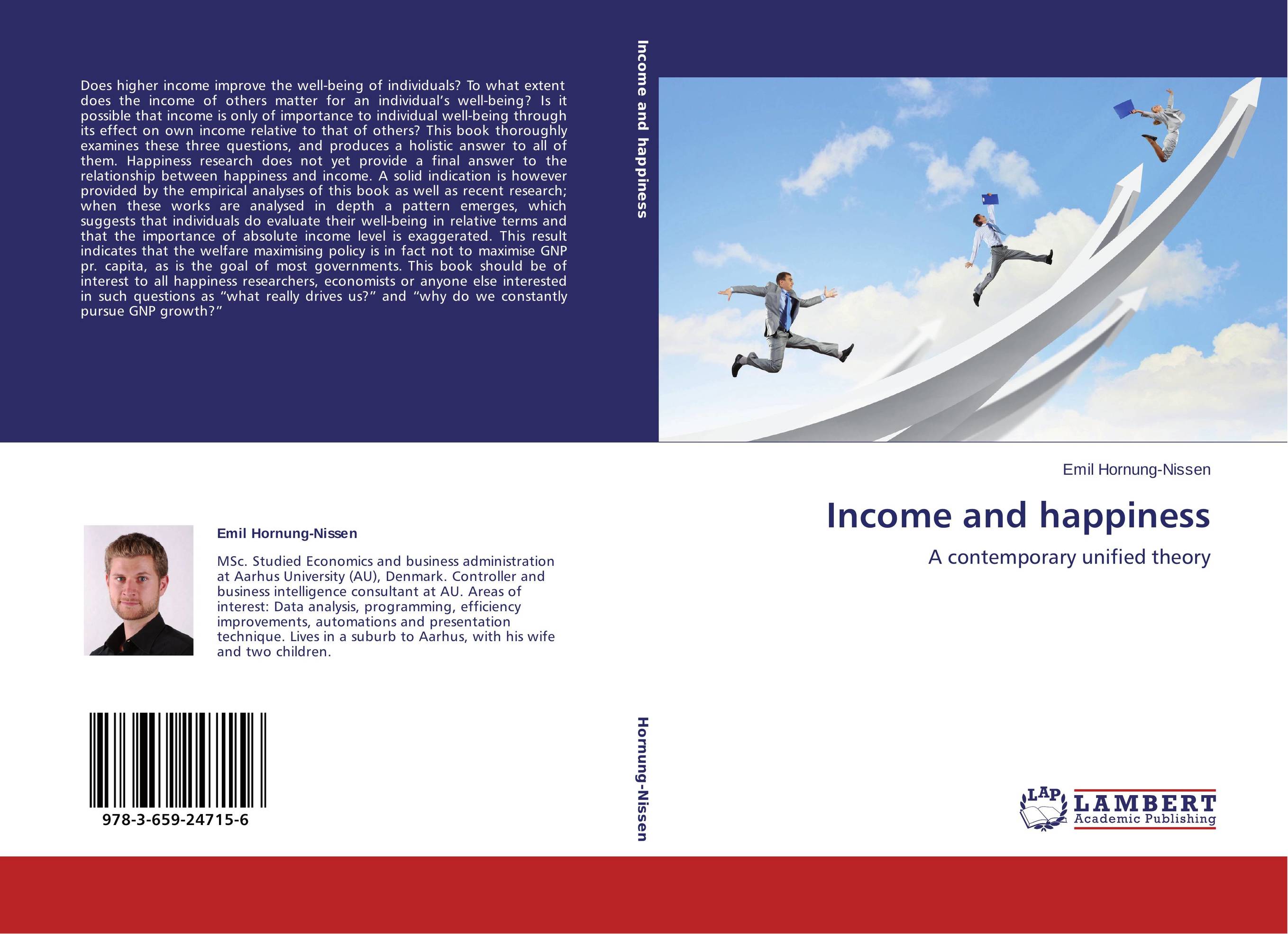| Поиск по каталогу |
|
(строгое соответствие)
|
- Профессиональная
- Научно-популярная
- Художественная
- Публицистика
- Детская
- Искусство
- Хобби, семья, дом
- Спорт
- Путеводители
- Блокноты, тетради, открытки
Income and happiness. A contemporary unified theory

В наличии
| Местонахождение: Алматы | Состояние экземпляра: новый |

Бумажная
версия
версия
Автор: Emil Hornung-Nissen
ISBN: 9783659247156
Год издания: 2014
Формат книги: 60×90/16 (145×215 мм)
Количество страниц: 120
Издательство: LAP LAMBERT Academic Publishing
Цена: 25340 тг
Положить в корзину
| Способы доставки в город Алматы * комплектация (срок до отгрузки) не более 2 рабочих дней |
| Самовывоз из города Алматы (пункты самовывоза партнёра CDEK) |
| Курьерская доставка CDEK из города Москва |
| Доставка Почтой России из города Москва |
Аннотация: Does higher income improve the well-being of individuals? To what extent does the income of others matter for an individual’s well-being? Is it possible that income is only of importance to individual well-being through its effect on own income relative to that of others? This book thoroughly examines these three questions, and produces a holistic answer to all of them. Happiness research does not yet provide a final answer to the relationship between happiness and income. A solid indication is however provided by the empirical analyses of this book as well as recent research; when these works are analysed in depth a pattern emerges, which suggests that individuals do evaluate their well-being in relative terms and that the importance of absolute income level is exaggerated. This result indicates that the welfare maximising policy is in fact not to maximise GNP pr. capita, as is the goal of most governments. This book should be of interest to all happiness researchers, economists or anyone else interested in such questions as “what really drives us?” and “why do we constantly pursue GNP growth?”
Ключевые слова: Income, GDP, happiness, life satisfaction, Random effects, fixed effects, subjective well-being (SWB), U-index, Easterlin Paradox, balanced panel data, micro panel, micro econometrics, National time accounting, The Princeton Affect and Time Survey, SOEP, STATA, Mundlak transformation, GDP per capita, Economic Policy, Empirical analysis, Relative Income, German Socio Economic Panel, Aspiration level, GNP per capita, reference group income



